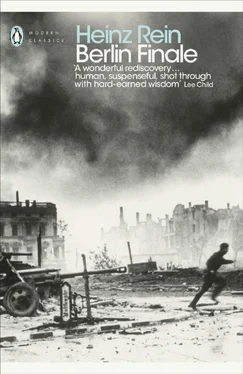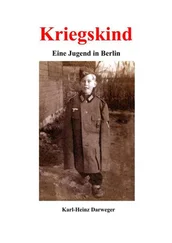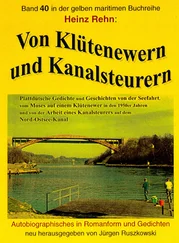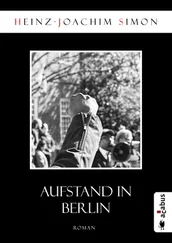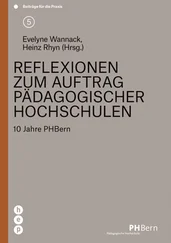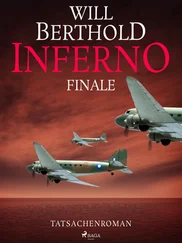The young man sits uncertainly back in his chair, but he doesn’t put the revolver away and observes the landlord’s every movement. ‘Who are you ,’ he asks, ‘that you are so special?’
The landlord laughs loudly. ‘I’m Oskar Klose, pub landlord. My name is up there in big wide letters for everyone who knows how to read. And who are you?’
‘No, no,’ the young man says, ‘you can’t talk to me like that. Sounding me out here and then…’ He shakes his head, takes a money bag out of his coat and leaves a five-mark note on the table. ‘Pour the beer.’
The landlord flicks the note contemptuously back. ‘Why don’t you trust me, son?’ he asks.
‘Why should I trust you of all people?’ the young man asks back. ‘Trust is a plant that no longer flourishes in Hitler’s Germany.’
‘Now you’ve given yourself away, son,’ Klose says, and rests his fat hand on the young man’s arm.
The young man automatically shakes his hand away. ‘Stop that, or…’ he adds threateningly and sets the gun down again.
‘But that’s enough nonsense for now,’ Klose says angrily and strikes the table with the flat of his hand. ‘I’m trying to help you… and you… You’re fed up with all that crap, right to the brim, that much is obvious.’
‘I bet I’m not the only one in Germany,’ the young man adds.
‘No, you certainly aren’t,’ Klose says. ‘And you can believe that I hate that brown-shirted shower like the plague, you can trust me. Or do you think you’re the first one to find his way to my bar because he threw that damned uniform in the dirt and did a bunk, whatever the consequences?’
‘You’re not telling me anything I don’t know already, Mr Klose,’ the young man says. ‘But there is so much betrayal and spying…’
‘It happens, it even happens a lot,’ Mr Klose the landlord admits, ‘but at my place…’ He shakes his head. ‘Sit down again, there’s something I’d like to tell you.’
The young man sits down on a chair again, but he sits right on the edge, alert and ready to pounce, still not letting go of his revolver.
‘I fought in the First War,’ Klose begins. ‘Of course, I mean I had to fight. I was a bad soldier, not that I’m a coward, I’ve often proved the contrary in my life, but it didn’t enter my head that we little people are supposed to let the big bosses smash our bones to bits, and once you’ve got thoughts like that in your head, you can’t be a good soldier. Isn’t that right?’
The young man nods. ‘That’s exactly how it is, but…’
Klose waves his words away. ‘You can have your say afterwards, just let me talk first. They tied me to the post a few times, you don’t forget that kind of thing as long as you live, and much else besides, like for example the way the brownshirts smashed windows after what they call the “seizure of power”, and beat me black and blue, because Solidarity and the Fichte Sports Association used to meet at my pub and because I always donated to Workers’ International Relief and the Red Cross and the Iron Front, but I’m sure none of that means a thing to you. How old are you?’
‘Twenty-two.’
Klose shook his head regretfully. ‘You didn’t grow up in normal times, that is, it wasn’t all that normal even before… But when you started thinking, the troublemakers had already glued up your brain. And what’s your name?’ The young man hesitates before answering, and plays awkwardly with the revolver.
‘Come on, out with it, lad,’ Klose says encouragingly.
‘Joachim Lassehn,’ the young man says at last.
‘Very nice,’ Klose says with an ironic bow. ‘And I’m Oscar Klose, fifty-eight years old, widowed, owner of this grand coachmen’s pub, but you know that already. And what’s your trade?’
Lassehn laughs bitterly and shrugs with resignation. ‘Trade?’ he asks. ‘How could I learn a trade? Have a think, Mr Klose, then you’ll see that your question, forgive me, is nonsense. In Easter forty-one I did my school-leaving exam, then I enrolled at music college, studying piano, I finished a term there, and then I was called up for labour service. It was incredibly hard for me, because I’m not especially manly, and my hands’ – he holds his slender, delicate hands out to the landlord – ‘are more designed for playing the piano than for shovelling. And from labour service I went straight to the army. How could I have a trade?’
‘You’re right, Joachim,’ Klose agrees, ‘it was a silly question. Go on?’
‘It won’t take long, Mr Klose,’ Lassehn replies. ‘Basic training in Münster, occupation in Norway and then off we go playing Chase the Soviets. I’d soon had enough, you can believe me. I don’t know if I’m a special kind of person, but I didn’t really connect with my comrades. They always thought everything was being done right and well and took everything at face value, but perhaps we shouldn’t judge them too harshly, because they were brought up to be unable to make judgements, to stick rigidly to the rules, to idolize. Six years of Nazi school, four years of Hitler Youth, one year of labour service, and then the papers and the radio are constantly hammering away at our brains, you can hardly be surprised…’
‘Nothing suprises me any more,’ Klose says, but he doesn’t smile, an angry, pinched expression has appeared on his benign, broad, jowly face. ‘You’re right, son, damn it all, but now tell me something about yourself. Obviously, they’d have worked out pretty quickly what was up with you.’
‘Of course,’ Lassehn confirms, ‘they bullied and tortured according to all the rules of Prussian military art, whenever they could, particularly when they caught me handing out a Soviet flyer.’
‘What kind of a flyer’ Klose asks.
‘One written by German soldiers in Russian captivity, I can still remember pretty clearly what it said:’
Front-line soldiers! German men and women!
Our sacrifices are senseless and pointless. Our comrades are dying for a completely hopeless cause.
There are two Germanys: the Germany of the Nazi freeloaders and the Germany of the workers, the Germany of the animal robbers and murderers and the Germany of honest hard-working people.
A chasm gapes between these two Germanys. The second people do not need the enslavement of other peoples, but its own liberation from Nazi serfdom.
The German people do not need to become the masters of foreign territories, but the masters of their own country. They must cleanse their own house of the Nazi plague, which condemns them to hunger, deprivation and endless wars.
Through the fall of Hitler our people can and will be able to take the fate of Germany into their own hands.
They will create a new Germany in which the people will be masters in their own house.
‘That was more or less what it said.’
‘I know it, son,’ Klose says.
‘You know it?’ Lassehn says, amazed. ‘Were you out there too?’
‘No,’ Klose laughs, ‘but Moscow broadcasts in Germany on shortwave thirty-one metres.’
Lassehn nods. ‘So that’s how. But let me go on. One day, when I refused to execute Russian POWs whose only crime was to carry a Communist Party membership card or to be Jewish, or simply because they looked intelligent, that was, as they say, it. I ended up in a punishment unit.’
Klose nods. ‘I know, the suicide team, digging up mines, defusing squibs, building bridges under enemy fire and so on. Right?’
‘Right!’ Lassehn agrees. ‘Even then I tried to run off and join the Reds, but it was impossible, the SS kept too sharp an eye on me. Then in December forty-three I was wounded at Voronezh, at first it seemed to be a simple bullet to the thigh, but the wound got worse because they’d neglected to give me a tetanus jab. For weeks there was a danger that my right leg would have to come off, or at least I lay there for months, first in Harkov, then in Kovel, and finally fetched up in Ratibor, when our magnificent Führer was on his way home with that great victory march of his. When the Russians were launching their major attack at the Baranov bridgehead, our hospital was ruthlessly cleared, and anyone who wasn’t exactly on the brink of death was decreed fit to fight. In Ratibor a reserve division was set up, and I was assigned to that. The division wasn’t even fully equipped when the Russians entered the Upper Silesian industrial zone. We ended up at the front, just as we were, some of us unarmed, without warm clothes, everything was at sixes and sevens – and I decided I wasn’t joining in, I threw the shooter away, got hold of some civilian clothes from an abandoned farmhouse and set off. It was a hellishly difficult business to get to Berlin, it’s crawling with military police thugs and swarming with Gestapo, and they’re very quick to turn you in these days. Well, at least I’m in Berlin now.’
Читать дальше
